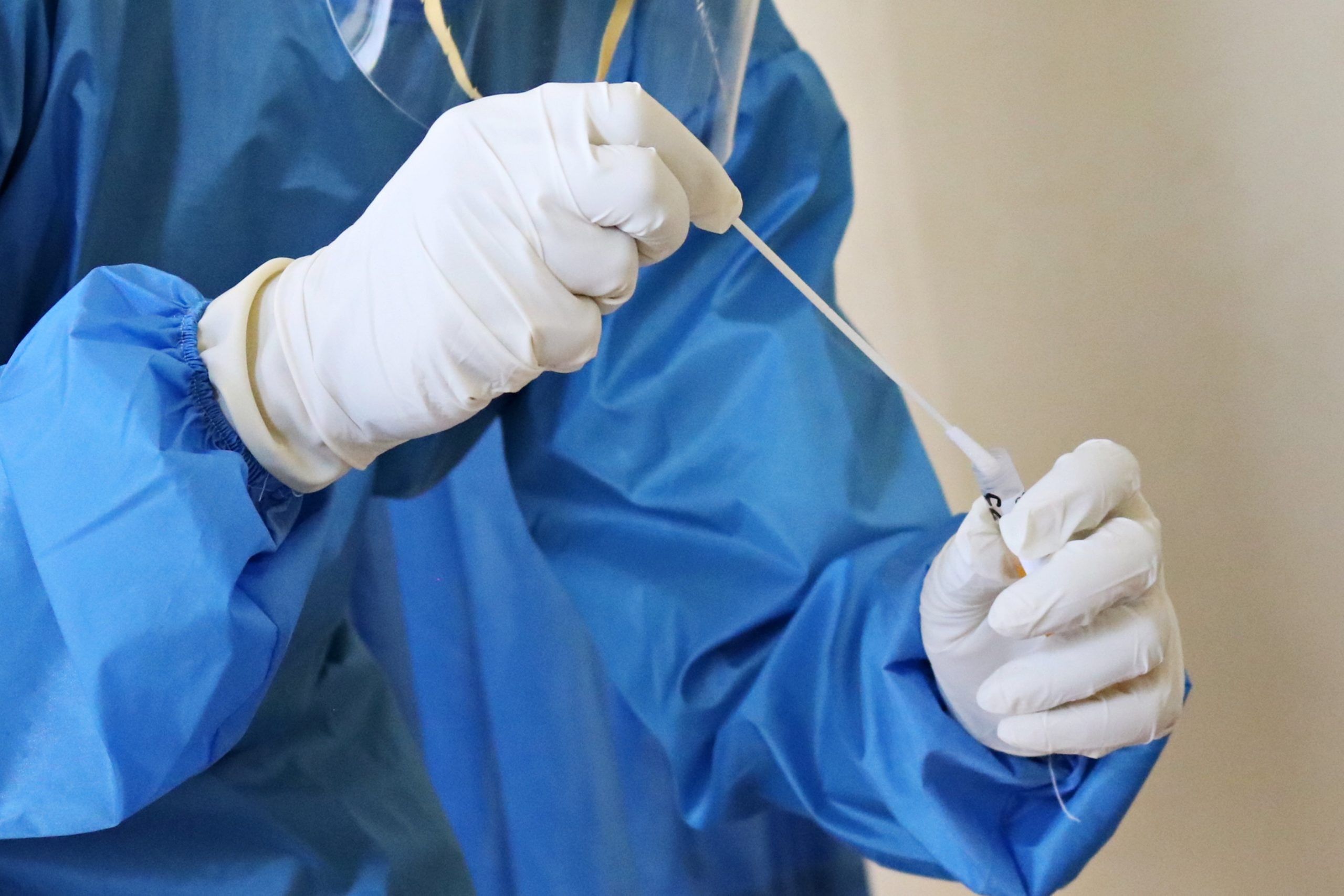
Today, we launch our first edition of ‘Health Headlines: Five Stories That Got Us Talking Last Month’ where we dissect five health stories at home and around the globe that may have escaped your attention, sharing commentary and insights from the industry to offer the Australian perspective.
On 26th June 2021, New South Wales entered its first hard lockdown of the year. Two months later and daily testing figures regularly exceed 100,000.
On 21st August 2021, a record-breaking 311,000 tests were administered.
To be turning around such astronomical testing numbers is a massive feat for the state’s pathology providers, but one that carries an immense burden.
Katrina McIlvride, a scientist at Sydney’s Douglass Hanly Moir Pathology (DHM) told 9 News recently: “It’s caused a lot of pressure on the laboratory, everyone is working very long hours, overtime and weekends.”
“This is very complicated work, it’s not simple. The sample can’t just be put onto a machine, it has to be prepared adequately so it has the best chance of picking up the virus,” added DHM Director Dr Michael Wehrhahn.
The National Health Service (NHS) in the United Kingdom was recently forced to put a temporary pause on all non-urgent blood testing due to supply chain issues.
Those on hold until mid-September include fertility, pre-diabetes, and allergies.
Doctors have been advised to stop the majority of blood testing until 17th September, while hospitals have reduced capacity by 25%.
Supply chain strain has been a common feature of the pandemic, and the Australian experience has been no different. Dean Whiting, CEO of Pathology Technology Australia (PTA), says a “dramatic” reduction in freight capacity has left the manufacturers and suppliers of diagnostic technology struggling to meet demand.
“Our members have experienced increased freight costs of between 100 and 500%,” he said.
“We had hoped that costs would start to reduce but there is no sign of that happening. Some generic drugs now cost more in freight costs than the reimbursement provided on the PBS.
“Even more alarmingly, reduced freight capacity is now impacting local inventory of some critical testing products. To prevent this becoming a significant public health risk, PTA has opened discussions with AusTrade, who are offering to find airfreight capacity when products of national importance are delayed.
“The importance of this challenge cannot be underestimated. At one stage last month, the national inventory of one of our critical test products dropped to less than one week’s supply.”
HotDoc is a medical appointment app created by Dr Ben Hurst in 2012.
The app recently made headlines after it assisted in securing four million people a COVID-19 vaccine appointment.
Its inexorable rise to notoriety was fuelled by young Australians seeking out General Practitioners (GPs) offering the AstraZeneca vaccine amid changing ATAGI advice.
The app enabled GPs to communicate available appointments to users, deliver consent forms directly to their phones, and send direct messages outlining potential side effects. It is interesting to see how a privately owned app can quickly become an integral part of Australia’s healthcare infrastructure.
Since launching this service, not only did Australians use the app to book vaccine appointments, but overall, HotDoc’s appointments have doubled, along with an astounding 40% of the population visiting the site at least once, making it a popular choice for all age groups.
Read about how AstraZeneca developed a COVID-19 vaccine whilst pursuing other R&D
At the end of August 2021, Moderna announced their plans to begin new Human Immunodeficiency Virus (HIV) vaccine clinical trials, using the same mRNA technology that resulted in the success of the various COVID-19 vaccines.
Approximately 30,000 Australians are currently living with HIV, with almost 40 million people worldwide.
The launch of Moderna’s HIV vaccine trials will be the very first human trials of an mRNA vaccine in response to the virus.
Richard Keane, CEO of Living Positive Victoria, believes HIV transmission could soon become a thing of the past.
“I do believe that we will see virtual elimination of new HIV cases in advanced economies like Australia within the next 20 years through a combination of existing and new technologies if meaningful engagement of people living with HIV and affected communities remains central to that shared mission,” he said.
“The rapid response required to address COVID-19 saw the greater sharing of information between various players in the pharmaceutical space. This has been exemplary and is the very template we will need to achieve the realisation of even more effective therapeutic treatments for HIV, potential preventative vaccines and hope of hopes, HIV cure, which would be the ultimate breakthrough for people living with HIV.
“HIV stigma still creates a barrier to people testing and beginning their treatment journey to attain a consistent undetectable viral load (UVL). Regardless of bio medical advances, it is our belief that we will not end HIV until we end the disease stigma that still exists 40 years into the pandemic.”
Major syphilis outbreaks have been reported in countries such as Australia, Ireland and Canada, with Alberta in Canada even declaring their highest reported cases of the sexually transmitted infection in 73 years.
Victorian scientists are currently employing genomic sequencing technology that was also used for COVID-19 to track growing syphilis outbreaks around Melbourne.
In Melbourne, there has been a concerning 45% increase in positive infectious cases.
Last month, worldwide Google searches for ‘Syphilis symptoms’ were up 35% in comparison to one year prior in August 2020 with a large 224,000 people searching for this term in August 2021. In addition to this, searches for ‘Early-stage Syphilis’ have increased by 50% in comparison to this time last year, with over 12,000 searches last month (source: Semrush).